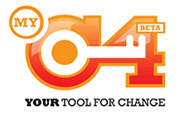 Acting on problems that came about when an insurance scheme, that was supposed to cover over 200 loans in Ivory Coast, failed (see previous coverage), MYC4.com announced it will reimburse all lenders on these loans, if the loans default.
Acting on problems that came about when an insurance scheme, that was supposed to cover over 200 loans in Ivory Coast, failed (see previous coverage), MYC4.com announced it will reimburse all lenders on these loans, if the loans default.
Mads Kjaer, CEO of MYC4, announced:
We have in previous update informed that we will intervene and take on the obligation towards the Investors and cover defaults on loans. MYC4 will cover all defaults on MISCOCI covered loans. In actual numbers this could amount to a total cost of EUR 388,000. This will put financial strains on our company, yet we believe it’s the right thing to do.
Now, what does it mean that MYC4 covers MISCOCI included loans? As noted, 242 loans in Cote d’Ivoire were supposed to be covered by MISCOCI insurance. These 242 are very likely to default within the near future – some are already defaulted (cf. MYC4’s default policy) and therefore MYC4 will cover Investors’ loss on their principal.
This means covering the spread between what has already been paid back and Investor’s principal or in other words: MYC4 will step in to reimburse Investors whatever amount they still have not received of their original investment. Meaning the original bid value minus total received repayments over time. We are currently working how we technically can do this in the system and will revert back with an update in two weeks time.
Loans without MISCOCI:
With regards to the not MISCOCI-covered Cote d’Ivoire loans, we are aiming at a solution that will create the best possible chances for Investors to get some of their money back by ensuring that Notre Nation and Ivoire Credit will continue to collect repayments also after the technical default on the platform.
Lenders welcomed this decision in forum feedback.
Other MYC4 news:
- MYC4 wins prize as “best financial e-commerce” by FDIH, the Danish Association of Internet and Distance Trade
- The first bid by IFU and CSR was made on MYC4 in their aim to invest 2.2 million EUR on MYC4 (see earlier coverage)


 In today’s conference call,
In today’s conference call, 
